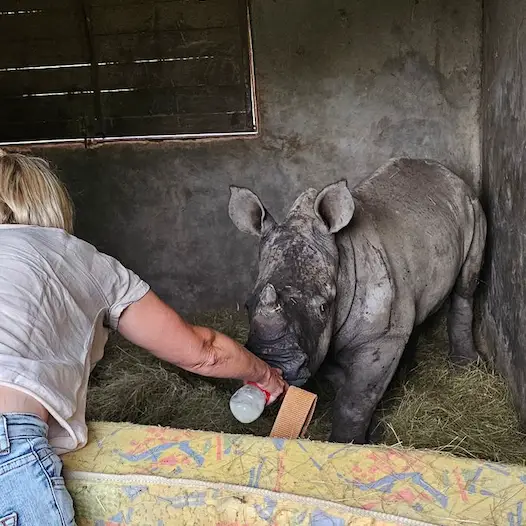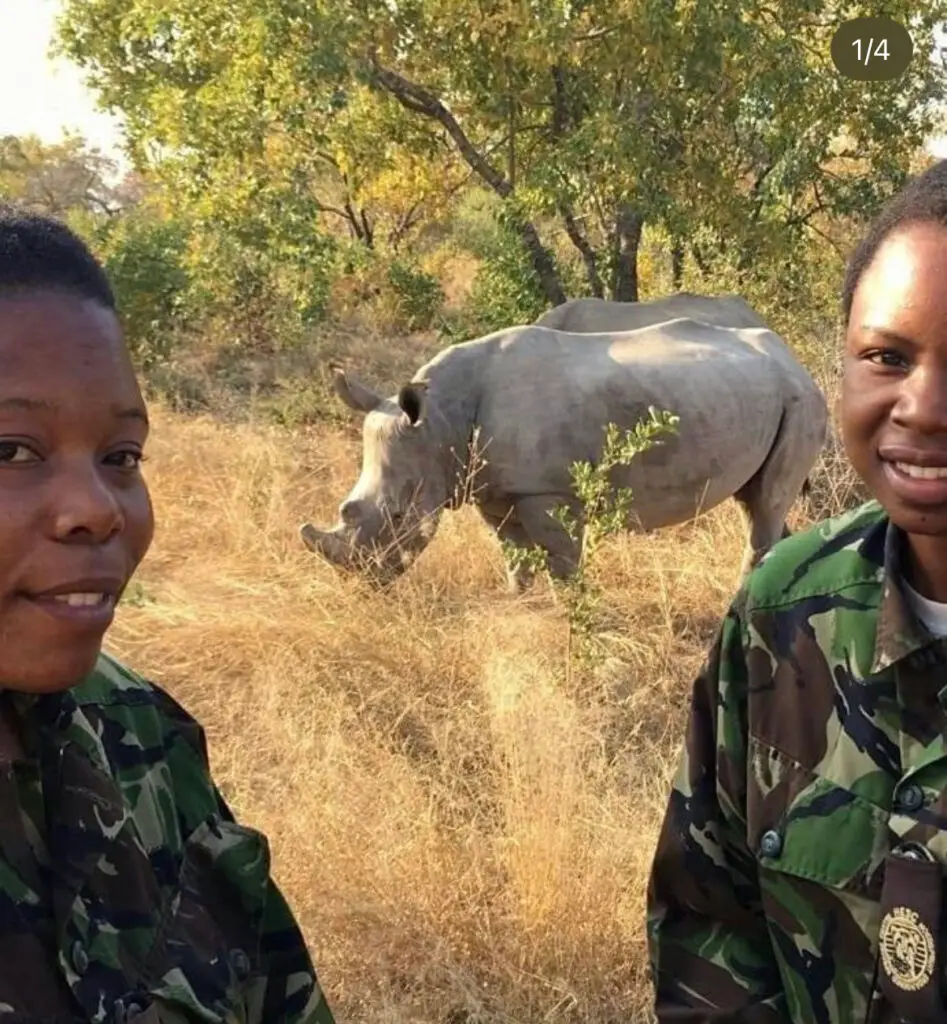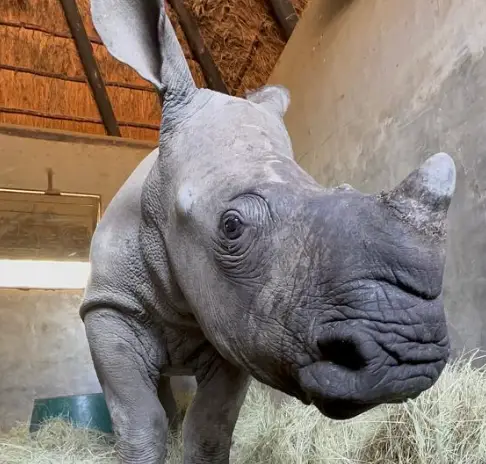Rhino Conservation
Rhino poaching has been driven by the demand for rhino horn in Asian countries, particularly Vietnam and China, due to its use as a status symbol to display someone’s success and wealth and in Traditional Chinese Medicine.
Globally, economic conditions are challenging since the pandemic, also in South-Africa, where poverty is on the rise. The surge in poverty unfortunately coincides with an increase in poaching, posing a threat to rhinos in their natural habitat.
Rhino calves, just like elephant calves, are extremely fragile and getting them onto milk bottles to see them through the initial stages of their young lives is complex. Rhinos are not quite as complex as elephants but taking care of a baby rhino is hard work and involves round-the-clock monitoring.
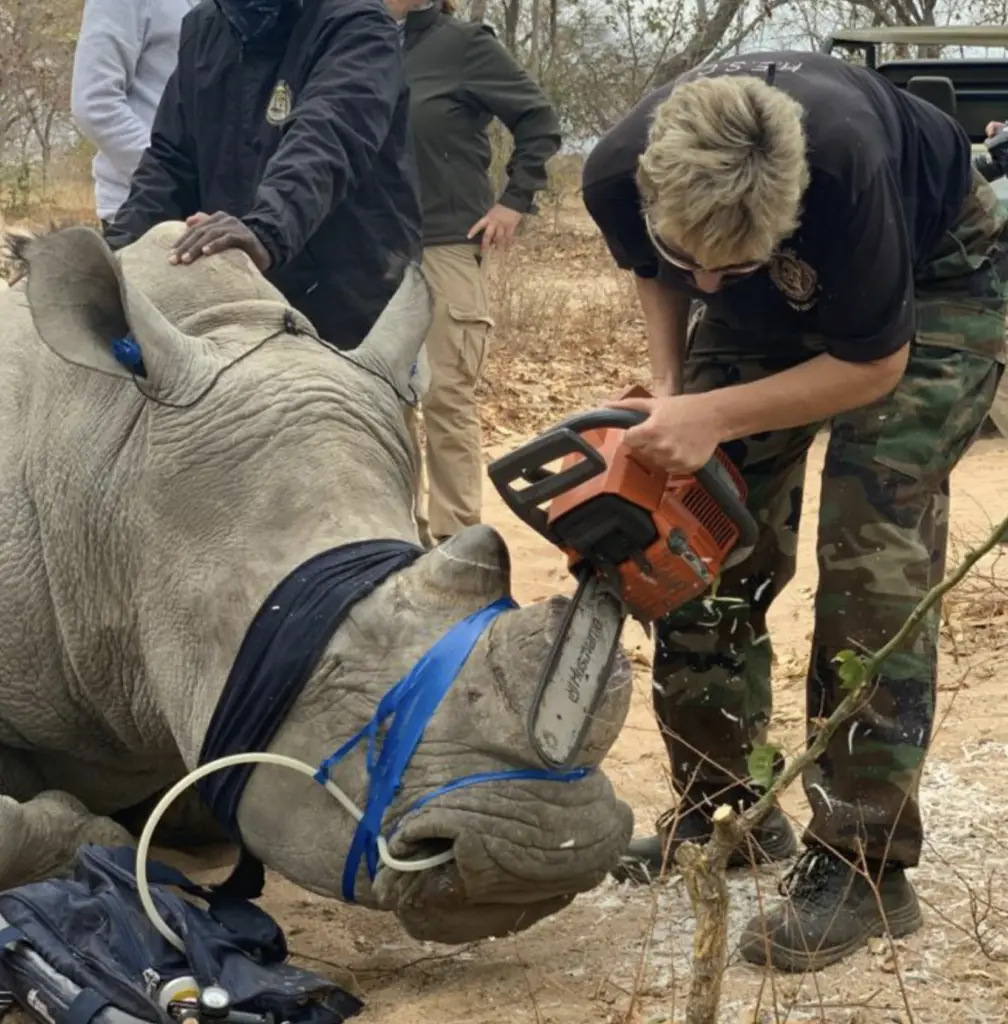
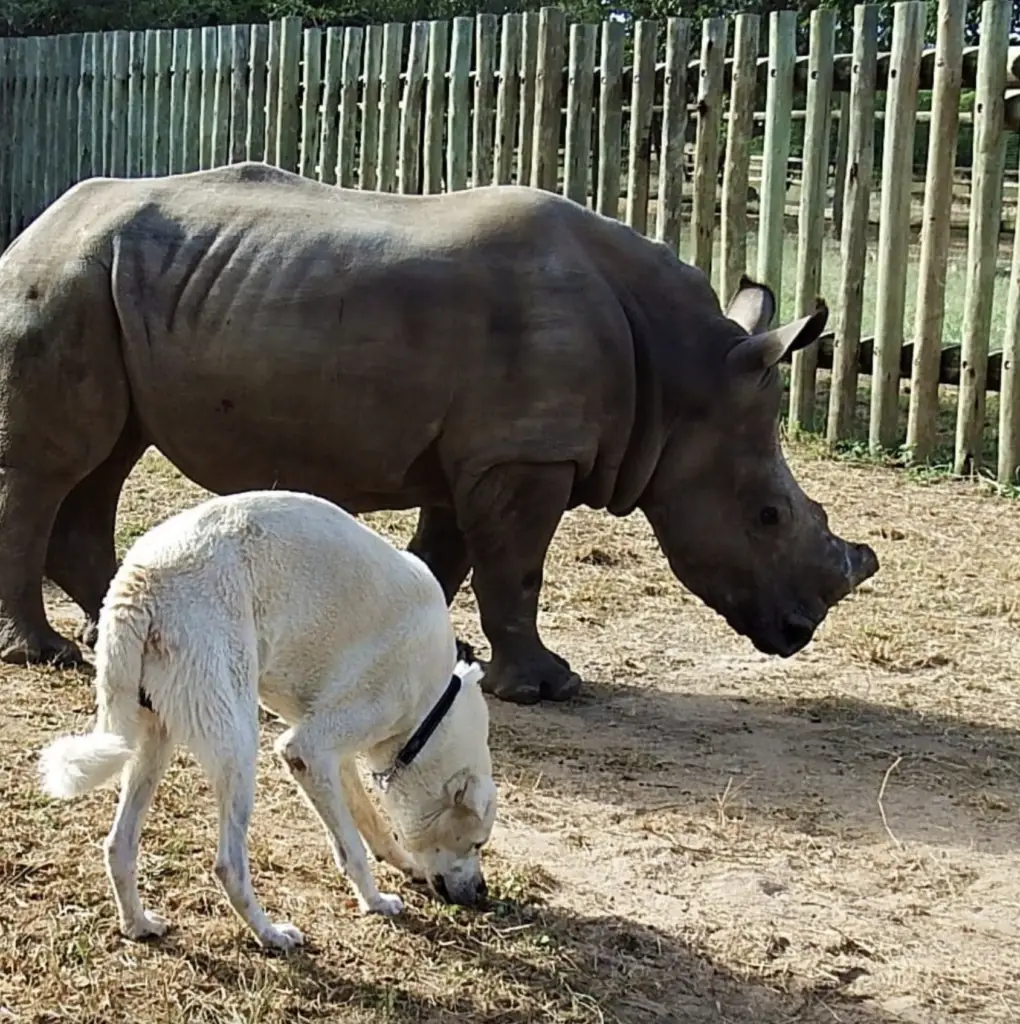
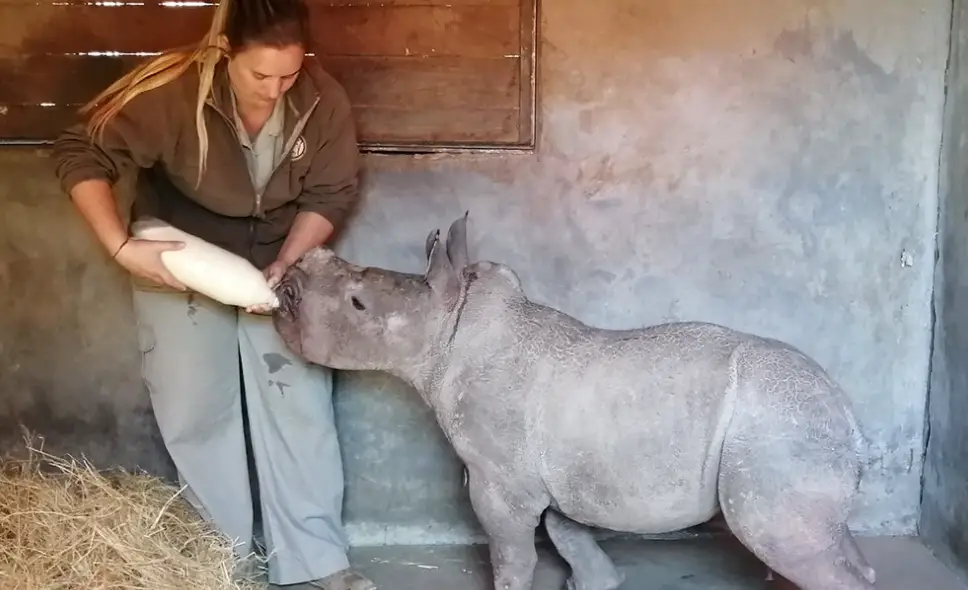
Supporting the care for Rhino Orphans
HESC, Hoedspruit Endangered Species centre, is home to a variety of animal and bird species but is also experienced in raising and caring for rhino baby orphans. Founded by Lente Roode, mother of Adine Roode from HERD, HESC has been actively working on wildlife rehabilitation since 1988. Adine’s life before she started the HERD elephant orphanage was focused around rhino & elephant rehabilitation at HESC.
As Adine is experienced and still loves and cherishes this animal species, she often helps out when new rhino orphans arrive. Rhino calves, just like elephant calves, are extremely fragile and getting them onto milk bottles to see them thorugh the initial stages of their young lives is complex. Rhinos are not quite as complex as elephants but taking care of a baby rhino is hard work and involves round-the-clock monitoring.
Check out our Rhino Orphan Fundraiser if you would like to support these amazing creatures.
Working together with local organisations to offer a solid solution
To ensure the protection of the rhinos and other wildlife, we support the Black Mambas project. Both black and white rhinos are monitored to strategize for anti-poaching patrols as well as conservation management. Rhinos are located through tracking as well as camera traps. The location and overall health are monitored closely to ensure that the population stays safe and strong.
During the past three and a half years, Transfrontier Africa has focused most of its efforts on strengthening partnerships with the adjacent tribal communities and seeking new technologies and partnerships to solve the illegal wildlife trade. Focusing primarily on ecological research & protected area management, Transfrontier Africa initiated the Balule Research Facility that partners with several local and international research institutions. A multi-pronged approach was developed to address the problems and research, socio-economic, technological and tactical solutions were developed and implemented.
Izindlovu Fund met Craig Spencer, the director of Transfrontier Africa and the Black Mambas in february 2020. Since then we work together to create more awareness on rhino conservation.
The Bush Babies offer an Environmental Education Program to 10 local schools in the communities surrounding Greater Kruger National Park. Children are between the ages of 12- 17 years (Grade 6 – 7) and the program is interlinked into the school curriculum. This program offers in depth introductions into Conservation, ecology, the big five and the importance of rhino’s over the course of the academic year.
The schools are visited on a weekly basis and a different aspect based on the theme of the day is discussed to familiarise the learners with their natural environment and emphasising the importance to conserve the environment for future generations.
With the Tour My World theme, Transfrontier Africa volunteers from around the world are taken to the classroom where they teach the Bush Babies about their home countries including facts such as the climate, animals and special features.
The Protectors Of The Rhino theme entails the visit and teachings from our Black Mamba Anti-Poaching Unit ladies who teach the learners about poaching and how it affects them.
